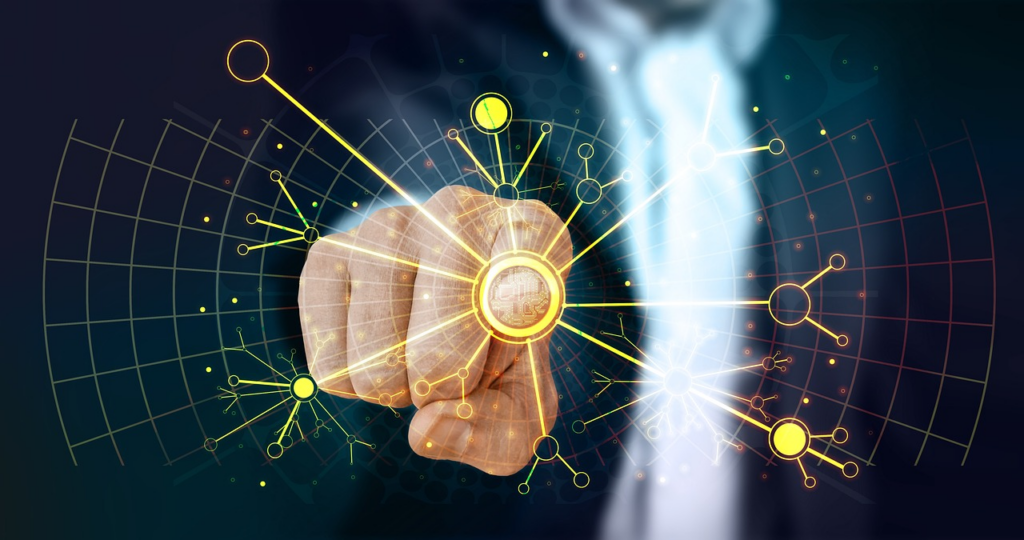Artificial intelligence (AI) has emerged as a driving force, transforming the way we interact with our devices and applications.
AI, a discipline that enables machines to learn and make decisions without direct human intervention, has found applications in a wide variety of sectors, from health and finance to entertainment and education.

Discover the 10 apps that use artificial intelligence
One area where AI has shone is in the development of intelligent applications, which employ advanced algorithms to improve the user experience and provide innovative services.
1. Intelligent Virtual Assistant - Google Assistant
Google Assistant is one of the leaders when it comes to AI-enabled virtual assistants. Using natural language processing and machine learning, the app is able to understand voice commands, answer questions and perform tasks such as making calls, setting alarms and even telling jokes. Its ability to understand complex contexts and adapt to user preferences makes it an outstanding example of how AI is improving human-computer interaction.
2. Content recommendation - Netflix
Netflix has revolutionized the way we consume media, and AI plays a key role in this revolution. Netflix's recommendation algorithm analyzes a user's viewing history, genre preferences, ratings and even scrolling speed to offer highly personalized content suggestions. This not only increases user engagement, but also boosts retention and loyalty.
See also: The main technological trends for the coming years
3. Mental Health - Woebot
Mental health is also benefiting from advances in AI, as evidenced by Woebot. This app acts as a mental health assistant, using interactive conversations based on cognitive-behavioral therapy to help users deal with stress, anxiety and other emotional problems.
The AI behind Woebot analyzes the user's responses to provide personalized guidance, bridging the gap between the demand for emotional support and the limited resources of healthcare professionals.
4. Image editing - Prisma
The Prisma app has captivated photography lovers by transforming ordinary images into works of art in the style of different famous painters. Through the use of convolutional neural networks, Prisma's AI is able to apply artistic styles to photos, creating impressive and creative results.
5. Language Learning - Duolingo
AI has also revolutionized the way we learn new languages, as exemplified by Duolingo. The application uses AI techniques to personalize the learning process, evaluating the user's performance and adapting the content according to their needs. In addition, the AI behind Duolingo offers immediate feedback, creating an interactive and effective learning experience.
6. Urban Navigation - Waze
Waze stands out among urban navigation apps for its ability to analyze information in real time to provide optimized routes. Waze's AI processes traffic data, accidents and other sources to calculate the best routes and arrival estimates. This not only saves time for users, but also contributes to reducing congestion on the roads.
7. Medical Assistance - Ada
The Ada app offers an innovative approach to medical care, allowing users to assess their symptoms and obtain personalized information about possible health conditions. By analyzing the user's responses, the AI behind Ada offers a list of probable conditions, helping users to make informed decisions about subsequent medical care.
8. Online shopping - Stitch Fix
AI has transformed the way we buy clothes online, and Stitch Fix is a striking example. The app uses machine learning algorithms to analyze the user's style preferences, purchase history and previous feedback in order to send a personalized selection of clothes and accessories. This simplifies the shopping experience and increases the likelihood of users finding items that match their taste.
9. Personal Finance - Mint
Mint is a financial management app that employs AI to provide detailed insights into users' spending habits. By analyzing bank transactions and spending patterns, Mint's AI categorizes expenses, identifies areas where users can save and offers personalized budgets. This allows users to make more informed financial decisions and achieve their economic goals.
10. Physical Activity - Fitbod
Fitbod exemplifies how AI is shaping the field of physical activity and fitness. This app creates personalized workout plans based on the user's goals, exercise history and available equipment. The AI behind Fitbod continuously adjusts the workout plans based on the user's progress, ensuring that the exercises are challenging and effective.
Artificial intelligence at your service!
Artificial intelligence is playing a key role in creating innovative applications that improve our daily lives. From intelligent virtual assistants to mental health apps and language learning tools, AI is empowering developers to offer more personalized and effective user experiences.
As technology continues to advance, it is likely that more applications will take advantage of the benefits of artificial intelligence, constantly redefining the way we interact with the digital world.
These examples illustrate just a fraction of the possibilities that artificial intelligence offers in the development of intelligent applications. As AI continues to evolve, new applications and functionalities will emerge, further shaping the technological landscape. However, it is also important to consider the ethical and privacy challenges that accompany the growing use of AI in applications.
See also: Artificial Intelligence and Machine Learning: Understanding the Future of Technology
August 10th, 2023
Graduated in Languages - Portuguese/English, creator of the Successful WriterHe also writes for Great App, expanding the knowledge of all technology lovers through movie and series reviews, game reviews and the main news of the moment.